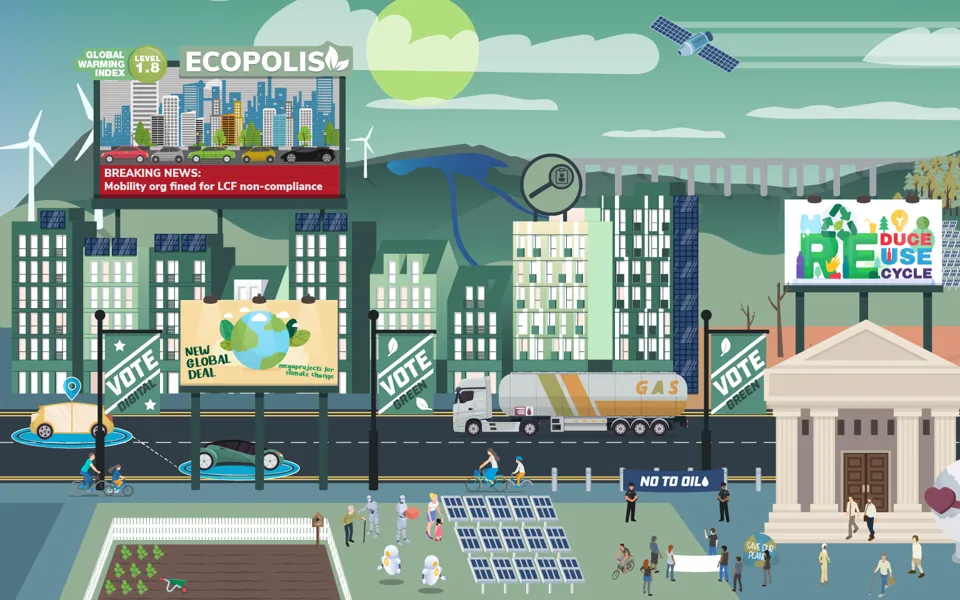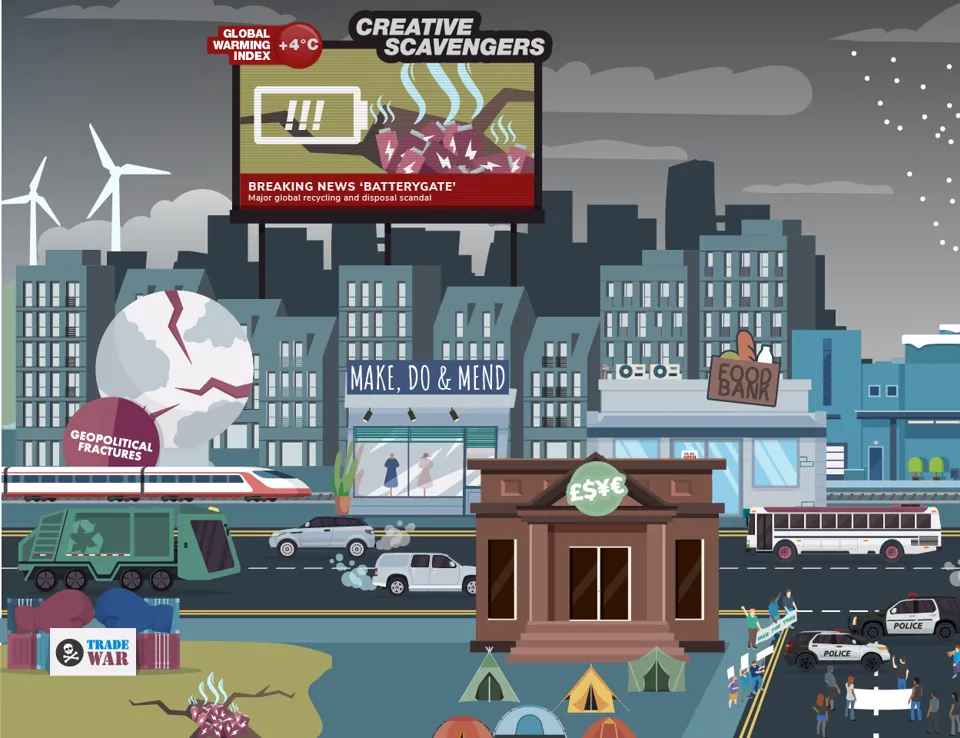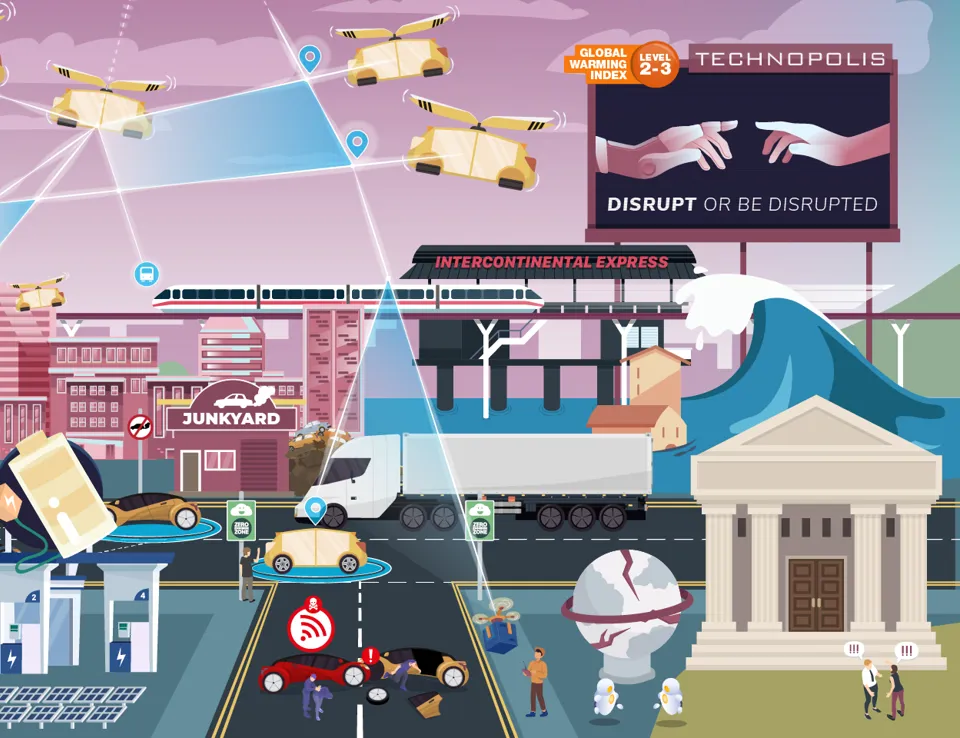
Ecopolis: Ricardo's scenarios for 2035 explained
06 Dec 2022

A world characterised by coordinated global efforts from policy setting and legislation to large international projects which have reduced the impact of climate crisis. Decarbonise or get penalised. We need support ensuring compliance and tools to enable cross-sector collaboration.
With a tightening of legislative and financial frameworks, mobility and oil companies face a stark choice: ‘Decarbonise or be penalised’. Coordinated international efforts – from policy setting to the ‘New Global Deal’, a series of state-funded megaprojects – have staved off the worst impacts of climate change, although regulation is threatening to suffocate innovation: mandatory Life Cycle Footprints for all goods and services have indirectly increased battery and electronics costs while data harvesting is rigorously restricted. There is recognition by governments that a range of propulsion and energy storage solutions is required – broadly, fluids for large vehicles and electrons for small vehicles. A major social change is that widespread use of AI and automation have driven the adoption of a Universal Basic Income, helping to produce a more cohesive and cooperative world.
-
Solar and wind creating electricity and e-fuels
-
Governments realise that a range of propulsion and energy storage solutions are required to address climate change; broadly speaking fuels for large vehicles and electrons for small vehicles
-
Legislation leads technology
-
Autonomous vehicles on our roads
-
Resurgence of home grown food and allotments
-
Climate change protests popular
-
Compliance is key as legislative and financial frameworks are tightened
-
Global economic crisis
-
Universal Basic Income (UBI) implementation driven by widespread utilisation of AI and automation
-
Keeping climate change in check
-
Droughts, floods and extreme weather
-
Seismic shifts in the way we live and vote
-
Strong legislation limits data harvesting
-
Coordinated global efforts from policy setting to large international projects have reduced the impact of climate change
-
Breakthroughs in recycling technology
-
Mandatory life cycle footprint for all goods and services

"In this possible future, compliance is key as legislative and financial frameworks are tightened. Coordinated international efforts – from policy setting to what we’ve called the ‘New Global Deal’, a series of state-funded megaprojects – have staved off the worst impacts of climate change. This is our only scenario where the world is on track to remain within 1.5oC of warming. However, regulation is threatening to suffocate innovation: mandatory life cycle footprints for all goods and services have indirectly increased battery and electronics costs while data harvesting is rigorously restricted.”
Angela Johnson, VP and Head of RSC EMEA

"In June, the European Parliament backed reforms to the European Union (EU) carbon market to help cut emissions faster. Earlier this year we saw new EU rules requiring batteries to carry a label reflecting their carbon footprint so their environmental impact is more transparent. And more than 70 countries, including the biggest polluters, have set a net-zero target covering about 76 per cent of global emissions. More than 1,200 companies have put in place science-based targets in line with net zero while more than 1,000 cities, 1,000 educational institutions and 400 financial institutions have also pledged to take rigorous, immediate action to halve global emissions by 2030."
Derek Schlonsky, Ricardo Strategic Consulting’s Global President




 Follow Ricardo plc for regular updates
Follow Ricardo plc for regular updates





